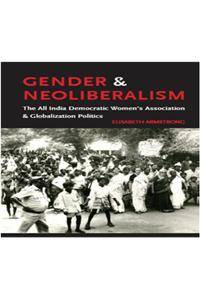Only logged in customers who have purchased this product may leave a review.
Sale!
Gender & Neoliberalism (Hardback) | Released: 2013
By: Elisabeth Armstrong (Author) Publisher: Tulika Books28.00% Off Original price was: ₹ 575.00.₹ 414.00Current price is: ₹ 414.00.
You save ₹ 161.00
This book describes the changing landscape of womens politics for equality and liberation during the rise of neoliberalism in India. Between 1991 and 2006, the doctrine of liberalization guided Indian politics and economic policy. These neoliberal measures vastly reduced poverty alleviation schemes, price supports for poor farmers, and opened Indias... Read More
In stock
Ships within 1-2 Business Days
100% Orginal Books
Easy Replacement
Certified product
Secure Checkout
On time delivery
Author:
Elisabeth Armstrong
Publisher Name:
Tulika Books
Language:
English
Binding:
(Hardback)
About The Book
This book describes the changing landscape of womens politics for equality and liberation during the rise of neoliberalism in India. Between 1991 and 2006, the doctrine of liberalization guided Indian politics and economic policy. These neoliberal measures vastly reduced poverty alleviation schemes, price supports for poor farmers, and opened Indias economy to the unpredictability of global financial fluctuations. During this same period, the All India Democratic Womens Association (AIDWA), which directly opposed the ascendance of neoliberal economics and policies, as well as the simultaneous rise of violent casteism and anti-Muslim communalism, grew from roughly three million members to over ten million. Beginning in the late 1980s, AIDWA turned its attention to womens lives in rural India. Using a method that began with activist research, the organization developed a sectoral analysis of groups of women who were hardest hit in the new neoliberal order, including Muslim women and Dalit women. AIDWA developed what its leaders called inter-sectoral organizing, that centred the demands of the most vulnerable women in the heart of its campaigns and its ideology for social change. Through long-term ethnographic research, predominantly in the countrys northern state of Haryana and southern state of Tamil Nadu, this book shows how a socialist womens organization built its oppositional strength by organizing the women who are most marginalized by neoliberal policies and economics.


Reviews
There are no reviews yet.